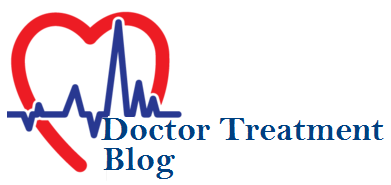The objective of gerontological health check-ups is to identify clinical itineraries and/or living conditions that may increase the probability of the occurrence of poor aging. As with any health check-up, we are looking for:
an organic deficiency that has gone unnoticed, poorly explored or poorly managed;
an asymptomatic disease process amenable to specific treatment;
lifestyle habits and/or a physical and social environment in the broad sense, risking aggravating the consequences of a deficiency or incapacity when they are not at its origin. It is the way in which these objectives are conducted that makes the originality of our approach. The aim is to help people over the age of 60 cope with their aging by allowing them to take stock of their state of health and to consider its evolution taking into account their life plans. We favor dialogue more than the technical approach. The clinical interview must enable the person to formulate their fears, to identify within themselves the resources that will enable them to cope with future situations. The doctor puts order in all the health information provided by the person in order to help him make sense of his health itinerary. It is not a question of adding a “medical layer”, by multiplying the tests and the technical explorations, on a situation where these layers succeeded one another according to the complaints and the diseases. On the contrary, as for a painting to be restored, we propose to return to the initial layer of life by stripping all the superfluous.
Discover Cairn-Pro5Members of the mutual, currently the Mutual equipment and territories (MGET), aged 60 to 75 years are invited by mail to participate in the assessment. This is financially supported by the mutual. If they accept, they receive a self-administered questionnaire at home which will allow them to describe their health and life itinerary: assessment of perceived health, history, declaration of symptoms and illnesses being treated, risk factors for illnesses cardiovascular and osteoporosis, list of medications, preventive consultations, lifestyle, social support, important events in their lives. They are then received for an hour by a geriatrician. With the help of the self-questionnaire and the medical file provided by the mutualist, the doctor reviews the functions which change with aging and which have a major role in the quality of life in old age: vision, hearing, teeth, cardiorespiratory fitness, balance, bone resistance, urinary continence, but also memory and the moral. He pays particular attention to drugs: assessing the relevance of the indication, possible interactions and the presence of side effects. He confronts antecedents (personal and family), complaints, clinical signs, results of simple tests and complementary examinations carried out before the assessment in order to appreciate the state of health. Only the functions which can be the subject of corrective measures and whose effectiveness has been assessed are examined. A medical opinion is formulated for each of them: functioning judged to be clinically normal or dysfunction correctly taken care of given current knowledge or dysfunction requiring further study or reassessment of the measures taken. The way of life, the preventive measures already taken, the material and social environment, the degree of physical activities and/or stimulating activities in the cognitive field, the difficulties encountered in life are examined in the same way.
6The exploration of the functions of the body and the context of life above all make it possible to appreciate the way in which the person copes with the health problems that he encounters. The perception of health and aging, self-esteem, psycho-affective state, the preferred dimensions of quality of life are important elements for satisfactory aging. The clinical information collected during the interview and the clinical examination is therefore not only used to identify organic dysfunctions but also to approach the existential dimensions of ageing. They make it possible to judge his ability to react to the difficulties linked to advancing age and which are likely to arise. At the end of the interview, an overall assessment is made by the geriatrician and a dialogue begins on the measures to be taken either to deepen the assessment through specialist consultations, or to consider changes in lifestyle. The important thing is to prioritize the advice, to make it consistent with each other and to discuss the means that the person will have to take it up on their own. Difficulties in following advice are at the center of the dialogue. A report is sent to the person in the days following the assessment. A duplicate for the attending physician is offered to the person. In total, a third of the consultation time is devoted to examining the self-questionnaire and the person’s file,

